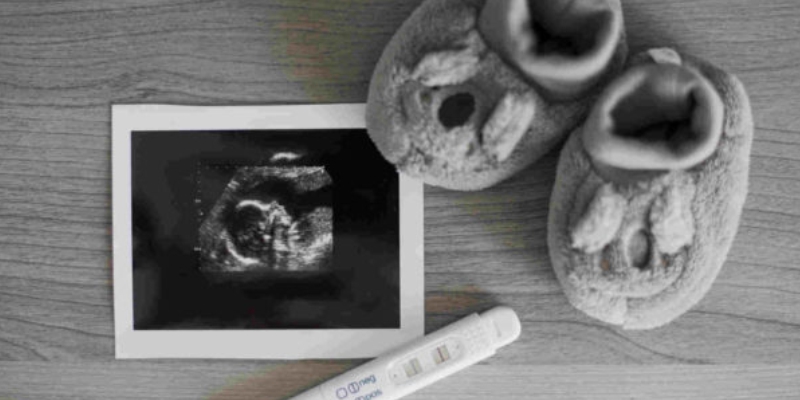Author: Dr. Tejinder Kaur
MBBS, Diploma in Hospital Administration, Diploma of National Board training, Fellowship in Reproductive Medicine
Consultant: Obstetrician & Gynaecologist at Motherhood Hospital, Mohali
Introduction:
Most doctors advise women of reproductive age to take folic acid, which does not necessarily help women get pregnant but certainly does help prevent congenital disabilities or birth defects and pregnancy complications. Folic acid becomes a significant part of any woman’s pregnancy journey. Another crucial supplement to boost a healthy pregnancy is Vitamin D.
Some women might be recommended higher doses of folic acid for pregnancy due to various medical reasons, such as neural tube defects or severe cases of anemia. Folic acid tablets are available in most pharmacies and hospitals. Women trying to conceive must have the respective folic acid dose prescribed.
Folic acid tablets for pregnancy are a vital component of prenatal care, offering a multitude of benefits for both mother and baby. Let’s take a more detailed look into why folic acid plays a crucial role during pregnancy.
What is Folic Acid?
Folic acid, a synthetic form of folate, belongs to the B-vitamin family, specifically B9. It is a crucial building block for DNA synthesis, red blood cell formation, and cell division. Essentially, folic acid aids in rapid cell growth and tissue formation, making it indispensable for fetal development.
Why is Folic Acid Essential Before and During Pregnancy?
Before conception and during early pregnancy, folic acid plays a pivotal role in preventing neural tube defects (NTDs) like spina bifida and anencephaly. NTDs occur in the early stages of pregnancy when the neural tube fails to close correctly, potentially leading to severe complications in the baby’s brain and spine. Adequate folic acid intake significantly reduces the risk of such birth defects.
When Should We Start Taking Folic Acid?
Ideally, women planning to conceive should start taking folic acid supplements at least three month before conception. Since neural tube defects develop in the early weeks of pregnancy, having sufficient folic acid in the body during this critical period is vital. However, if the pregnancy is unplanned, it’s imperative to begin folic acid supplementation as soon as possible after discovering the pregnancy.
Benefits of Consuming Folic Acid Tablets for Pregnancy
Folic acid supplements help pregnant women reduce and prevent pregnancy complications, contribute to the growth and healthy development of the fetus, and keep the new mother healthy and free of health complications, ensuring a safe pregnancy journey.
Some of the folic acid uses are listed below:
- Prevents Neural Tube Defects: Neural Tube Defects are congenital disabilities or birth defects that affect the baby’s brain and spine. Taking folic acid regularly can help prevent neural tube defects, making it one of the most crucial reasons why women must take folic acid during and before pregnancy. Some of the most common neural tube defects are spina bifida (spinal cord defect), anencephaly (brain defect) and encephalocele (brain defect).
- Brain Development: Another benefit of folic acid for pregnant women is that it helps form the baby’s brain nervous system and builds a solid foundation for cognitive development.
- Prevents Miscarriage: Women taking folic acid supplements are at a lower risk of having a miscarriage. Folic acid can also help prevent preterm birth, as suggested in studies.
- Prevents Heart Defects: Taking adequate folic acid helps during the baby’s heart development. Folic acid also lowers the risk of congenital heart defects.
- Placental Development: Apart from helping in the healthy development of babies in the womb, it also aids in healthy placental development. The placenta must develop well, as it is essential for supplying oxygen and nutrients to the growing fetus or the baby.
- Reduces Low Birth Weight Risk: Taking folic acid supplements reduces the risks of low birth weight. Low birth weight may be due to many reasons, including health complications for the baby.
- Risk of Preeclampsia: Folic acid supplements lower the dangers of preeclampsia. Preeclampsia is a pregnancy complication that leads to high blood pressure.
- Production of Red Blood Cells: The production of red blood cells during pregnancy is essential, supported by folic acid supplements. The supplements also help prevent maternal anemia during pregnancy.
- Reduces the Risk of Autism: Many studies suggest that folic acid can potentially reduce the risks of having a baby in the autism spectrum. However, more research has yet to prove the same.
- Risk of Cleft Lip: Taking folic acid supplements also lowers and reduces the risks of cleft lip or palate. A cleft lip or palate is when the baby’s upper lip or the palate does not join together.
How Much Folic Acid Should I Take?
Pregnant women’s recommended daily folic acid intake is 400 micrograms (mcg). However, women with certain risk factors may require higher doses, as their healthcare provider advises.
Is Folate and Folic Acid the Same?
While folate and folic acid are often used interchangeably, they are different. Folate refers to the natural form of the vitamin found in foods, while folic acid is the synthetic form used in supplements and fortified foods. Both are essential for prenatal care, with folic acid more readily absorbed by the body.
How Can I Get Enough Folic Acid?
Besides supplements, folic acid can be obtained through a balanced diet rich in folate-rich foods such as leafy greens, citrus fruits, beans, lentils, fortified cereals, and nuts. However, getting the recommended amount through diet alone is often challenging, making supplementation crucial during pregnancy.
Folic Acid Side Effects
While folic acid is generally considered safe, high doses may cause side effects such as nausea, bloating, and abdominal cramps. Sticking to the recommended dosage and consulting a healthcare provider if experiencing any adverse reactions are essential.
For a healthy pregnancy, women must take folic acid before and during pregnancy. However, most importantly, women must make sure to take some important supplements during pregnancy and include a healthy and balanced diet which includes – spinach, kale, brussels sprouts, cabbage, broccoli
beans and legumes (e.g. peas, blackeye beans), oranges and orange juice, wheat bran and other whole-grain foods, poultry, shellfish, liver, and others.
During pregnancy, women must not resort to bad habits like smoking, drinking or having too much junk food. Pregnant women must have repeated visits to their respective doctors and continue their folic acid supplements. It is not rare for doctors to recommend prenatal vitamins along with folic acid. Being candid about medical issues with the doctor becomes crucial as it helps the doctor understand and identify the correct dose the pregnant woman needs.
Women can significantly reduce the risk of congenital disabilities and complications, paving the way for a healthy pregnancy and a happy, thriving baby.
If you are on the verge of menopause or are going through menopause along with urinary symptoms, consult Dr Tejinder Kaur at the Motherhood Hospitals.
At Motherhood Hospitals, we have a team of experienced supers specialists backed by the latest infrastructure and facilities. We have the best gynecologist in Mohali. We are experts in handling complex deliveries, gynecological, and other surgeries including a range of laparoscopic surgeries.
Do make an appointment with the best woman’s care hospital in Mohali at a center closest to you. Meet with our doctors who will carry out the required investigations, diagnose the issue, and recommend the most appropriate treatment, enabling you to lead an active life.
If you wish to get in touch with Dr. Tejinder Kaur, please book your appointment here.


 Toll Free Number
Toll Free Number
















